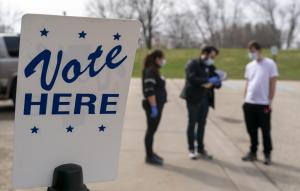Recently, a documentary called ‘The Great Hack’ started trending on Netflix. Whether it is because of the recent U.S. election or pure happenstance, it boasts an intriguing premise which promises to uncover some of the biggest political scandals in the modern world. With Facebook (already notorious for snooping around more than it should) and Cambridge Analytica at the forefront of a jumbled mess, the cinematic tone of the documentary is nothing short of eerie. When ‘The Great Hack’ came out, it openly claimed that the latter, a data analytics firm, had unethically obtained personal data of Facebook users and then leveraged it to target voter groups for political mileage. It was also alleged that these malpractices led to the passing of the Brexit referendum as well as Donald Trump beginning his POTUS reign in the 2016 elections.
Psyops
The claims might sound surreal at first. After all, can the will of the masses really be manipulated, especially in one of the world’s strongest democracies? At what point in time did technology make its shift from a boon to a bane? Viewers of ‘The Great Hack’ keenly watched, hoping to find answers to the looming questions. As it turns out, it might be entirely possible to manipulate election/referendum results in a certain direction, as corroborated by the film and numerous articles. How? Psychological Warfare—the centrepiece of the puzzle.
Psyops or Psychological Operations depend on conveying specific information to a group in order to sway their emotions and behaviour. Although originally used in a military context, it has now branched into the realm of politics. One example that springs to mind is described in the documentary itself. As part of a sales pitch, Cambridge Analytica bragged about its strategic role in triggering voter suppression in Trinidad and Tobago, wherein they spread tailored propaganda to young black voters, urging them not to vote.
What Happened During the 2016 US Election Scandal?
As the race for the throne intensified between the Republicans and the Democrats, Cambridge Analytica was a useful tool in the former party’s arsenal. It initially was employed by Ted Cruz in the primary elections and then by Donald Trump in the general election. The records of millions of Facebook users were scraped by the firm which then went on to prepare comprehensive psychological profiles of as many voters as they could get their hands on. The profiling methodology involved the ‘OCEAN’ test which entailed scoring participants on 5 traits–Openness, Conscientiousness, Extraversion, Agreeableness, and Neuroticism. The innocent ‘like’ on a neighbour’s photo or the number of seconds you spent watching that video of cute puppies, was fodder for the profiling. The AI learned more and more about the likes, dislikes, engagement time of the users, and predicted their personality types almost to the tee. Content was customised according to these predictions and it was thrown at Facebook users on their feeds.
This scandal is a direct application of behavioural science as Cambridge Analytica ran different ads for different individuals on the same issue, based on a curated judgement of their personality. Personalised content helped them persuade different people to formulate a similar opinion on an issue or a party. Contrary to blanket advertising, the company relied on targeted communication. Targeted ads aside, Facebook doesn’t really partake in fact-checking the political content that candidates can advertise over the platform, as one can tell from this exchange between Congresswoman Alexandria Ocasio-Cortez and Mark Zuckerberg.
The Ethics of It All
While it is entirely legal for companies to purchase user data from Facebook and other third-party firms, the line was crossed when this was done with the sole intent of distorting election results using micro-targeting. But for them, did a line even exist? When American users used a certain Facebook app called ‘This Is Your Digital Life,’ they were aware that some of their data would be collected but were not notified that so were their friends’ profiles. The cherry on top was that even the ones who signed up were not told that their data would be shared outside. It has become exceedingly important to talk about ethics when privacy is breached, or someone’s consent is violated.
Having surpassed oil, data is the most valuable asset in the world today. Is the negligent handling of user data on Facebooks’ part by mistake or design? The business model of the giant is that of a free-to-use platform funded almost entirely by advertisers. If we are not directly paying for something, it is possible that we are the product and the consumer-advertisers. This is also directly linked to the spread of fake news and propaganda, which is, as we have seen, capable of inciting riots. What we can do on our end is to share our data mindfully, and not believe everything we see online. Taking an extra minute to fact check political content before we hit the ‘Share’ button, can make a significant difference.




